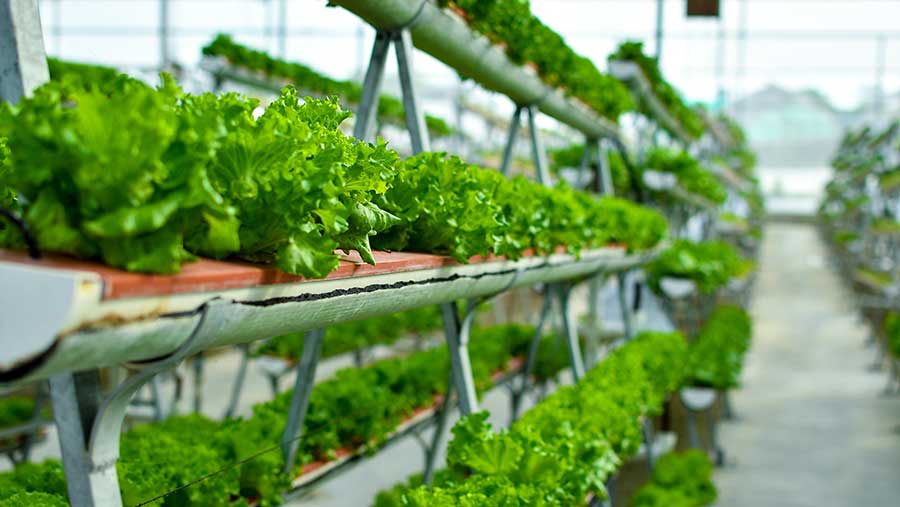Vertical farms offer solution to fruit and veg shortages
 © mustbeyou/Adobe Stock
© mustbeyou/Adobe Stock Empty supermarket shelves have thrust the UK’s over-reliance on imported fruit and vegetables into the spotlight, but the expansion of vertical farming in the UK could provide an alternative, says a leading scientist.
Vertical farming can provide a more space-efficient growing environment with greatly reduced risks from pests, disease, and the weather, according to Prof Derek Stewart, director of the advanced plant growth centre at The James Hutton Institute.
He believes the UK’s £6bn deficit for fruit and vegetables could be reversed almost completely with the adoption of widespread vertical farming.
See also: France unveils €200m fund for home-grown fruit and veg
A commercial vertical farm can provide more than eight times the growing capacity on the same ground space than conventional growers, according to Edinburgh-based technology outfit, Intelligent Growth Solutions (IGS).
Substantially faster growth times for plants can be achieved using artificial lighting, although this leads to a significant increase in energy costs.
IGS has estimated that just 60 large-scale vertical farms could make the UK self-sufficient for leafy greens.
IGS chief operations officer Andrew Lloyd said: “With retailers in the UK more inclined to buy fruit and veg on a longer-term model, and with the real impact of post-Brexit border rules for imports not known until January 2024, more needs to be done to future-proof our food production, and fast.
“On top of this, so-called once-in-a-generation weather events are becoming more common. These problems are no longer outliers. If we want future food security, we need to start taking action.”
